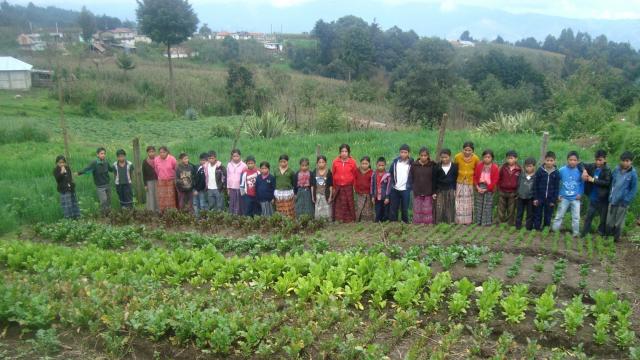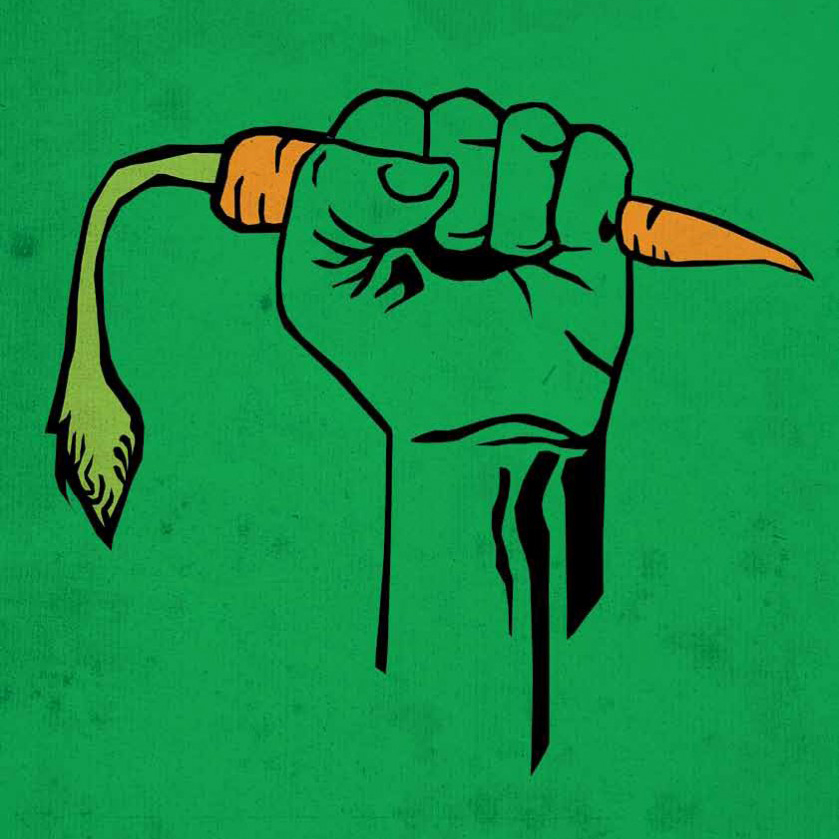
Chewing on a mouthful of locally grown lettuce, I wondered if the claims I’d heard about the global food-justice movement were true. Was there a line to follow, however crooked, between my purchase of these greens, land reform in Brazil and opposition to genetically modified seeds in California. Or was it all just empty calories?
As a somewhat conscientious consumer and occasional Taco Bell boycotter, I’ve hoped that the movement was real. But it hasn't always been easy to perceive the connection between marching for improved farmworker rights, signing a petition against factory feedlots, and cooking up beets from a CSA (that is, community supported agriculture, which usually comes in the form a box of assorted veggies delivered to people who contribute to a local farm’s financial well-being).
Those connections form a tight weave in the new book, "Harvesting Justice: Transforming Food, Land, and Agriculture in the Americas." Using “food sovereignty” as the secret sauce, the book sautés the individual ingredients of sister movements into a coherent, flavorful whole.
The book was created for the U.S. Food Sovereignty Alliance—a network of organizations allied with La Via Campesina, which advocates for culturally appropriate (think tortillas in Mexico instead of bread), ecologically sound (no GMOs), and small-farmer friendly food systems.
The book’s authors, Tory Field and Beverly Bell, do a lot more with food than just write about it. Field is a farmer who co-manages the Next Barn Over Farm, a CSA program in western Massachusetts. Bell has worked for decades with small farmer organizations in Haiti, including those who set fire to agricultural aid after the 2010 earthquake. The farmers didn't see the donated seeds as aid, but as a Monsanto “trojan horse” undermining their control over their own food.
Both authors are also members of Other Worlds, an organization that educates the public about citizen movements and builds community alternatives to corporate globalization. Introducing us to farmers speaking in their own voices, they describe how fighting the dominance of agribusiness and relocalizing the food system are indeed two sides of the same coin.
The book merges five years of field research and interviews, and describes more than 100 case studies of advocacy campaigns and alternative food systems in the United States and around the world. The authors interview New Mexican farmer and teacher Miguel Santistevan, who insists that “We don’t like the way the food system treats the earth and its negative health effects on the people, [and] we are working to actualize an alternative.”
They introduce us to Rosnel Jean-Baptiste of Heads Together Small Peasant Farmers of Haiti (Tèt Kole Ti Peyizan Ayisyen), who says, “It’s not houses that are going to rebuild Haiti, it’s investing in the agriculture sector.”
And they encourage consumer action through the words of Ben Burkett, president of the National Family Farm Coaltion. “No matter what us farmers plant, the consumer’s got to change the system, ” Burkett says. “As long as they don’t complain, there’s no need even talking about it. The marketplace dictates.”
Designed for use as an organizing tool
Accompanying the book is a curriculum of teaching exercises called "Sowing Seeds," intended for use in community and academic settings. The curriculum is dizzyingly comprehensive, a kind of “best of” in food systems education culled from sister organizations.
Have you ever wondered how many tons of tomatoes a picker needs to pick each day to earn minimum wage, or what the salary of David Novak—the CEO of the company that owns Taco Bell—would add up to in tons of tomatoes at the same rate? It’s all in here. Consumer, producer, and retailer perspectives are all explored through engaging exercises. Suggested workshop formats may come in handy if you are an educator or organizer.
You may want to nudge your local bookseller to carry Harvesting Justice. I'm guessing they won't be sorry. It’s not only highly readable but may catalyze actions such as getting local food into school lunches. The stunning photos serve up inspiration to get off your duff and transform the local food system.
Because it provides that kind of inspiration, this is the kind of book that your local food co-op, farmer’s market, or anti-hunger organization might consider using as a study guide. It can help connect the dots between community groups doing related work and break up any sense of going it alone. The appendix fills nearly fifteen pages, introducing us to groups like the Food Chain Workers Alliance, First Nations Native Agriculture and Food Systems Initiative, and the Honduran Garifuna organization. While these organizations are scattered around the planet, they form the foundation of a localized, alternative food system.
Reading about how people transform the way they farm and eat makes you want to reach for a big soup pot, cut up some onions, and cook up your own plans with your neighbors. Harvesting Justice gives you more than the recommended dose of civic engagement.
Originally published by Yes! Magazine.
3 WAYS TO SHOW YOUR SUPPORT
- Log in to post comments













